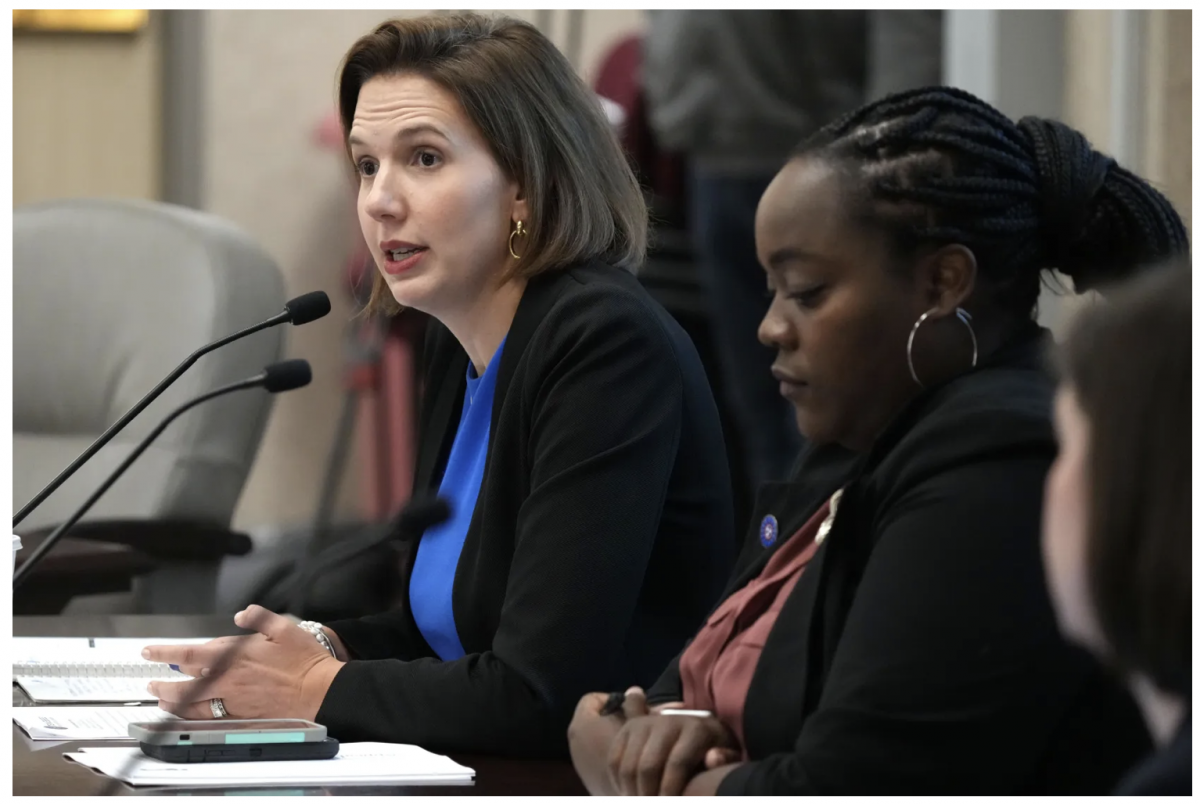When Tennessee legislators passed a tough third-grade reading law during their 2021 special session on education, they didn’t seek the input of many educators.
But they’re hearing a lot of feedback now, as the law’s stricter retention policy kicks in with this year’s class of third graders. Educators are warning about the potential for thousands of students to be held back because of low reading scores, along with a slew of logistical challenges created by the law.
Revisiting the controversial third-grade reading law is expected to top the list of education priorities heading into this year’s 113th General Assembly, beginning Tuesday in Nashville.
Meanwhile, Republican Gov. Bill Lee will unveil details of his legislative agenda and proposed budget several weeks after being sworn in for his second term on Jan. 21.
Last year, no education issue seemed too big or small for the GOP-controlled legislature to take up — from passing Lee’s sweeping rewrite of the state’s K-12 funding formula to authorizing teachers to confiscate students’ cellphones if they’re deemed a distraction in class. Lawmakers also asserted state power over several matters traditionally handled at the local or school level, including which books are OK for libraries and how to resolve a dispute between two cities over school properties.
This year, the GOP may flex its supermajority power again on socially divisive issues, including one bill that seeks to limit health treatment for transgender youth.
But whether charter school advocates will try again to pass charter-friendly legislation is still uncertain after several Republican-sponsored proposals sputtered last year and the fallout over charter applications linked to Michigan’s Hillsdale College galvanized supporters of traditional public schools.
As for the Democrats, their minority status limits their influence over legislation. But expect them to hammer their messaging around themes of restoring local control over education and the potential fiscal effects of expanding Tennessee’s charter school sector and private school voucher programs.
Here are five things to watch for as the General Assembly convenes:
During his first term, the governor spent significant political capital to pass major education laws — launching a private school voucher program, creating a powerful state commission to oversee charter school growth, expanding vocational education options for middle and high school students, and replacing the state’s 30-year-old resource-based funding formula with a student-centered one called Tennessee Investment in Student Achievement, or TISA.
Last fall, Lee suggested the dizzying pace would continue, with a campaign pledge to teachers and parents that he would “make the most of the next four years.”
But legislative leaders working closely with his administration say this year’s education focus will be to execute what’s already passed — not introduce new major initiatives.
“We’ve done a lot, and I think it’s going to be a quieter year on education,” said Senate Majority Leader Jack Johnson, who carries bills on the governor’s behalf.
Specifically, he said, Lee wants to monitor this year’s rollout of the funding formula and third-grade retention policy. “We may need some tweaks and improvements on those but, in terms of any new broad initiatives, I don’t anticipate anything from the administration,” Johnson told Chalkbeat.
When Lee pressed last year for an education funding overhaul, he pledged an additional $1 billion annually for students if TISA passed, beginning with the budget that takes effect this July 1. With state revenues continuing to exceed expenses, the expectation is that he’ll make good on that promise.
On other budgetary matters, Lee has said he wants to continue upping teacher pay. He’ll also likely set aside money so the all-volunteer state textbook commission can hire staff to manage a new library book appeals process authorized by the legislature in 2022. And he’s expected to propose more funding for the state agency for children’s services, which is severely understaffed and short of beds for abused, neglected, or foster children who are taken into state custody.
Meanwhile, the legislature will review ways to continue tapping state or federal dollars for perennial educational wants, from more social services for schools to expanded access to pre-kindergarten and early child care.
Vowing to stop the cycle of letting students who can’t read move up to the next grade, Lee pressed for the new third-grade reading law, which tightens state retention policies that generally haven’t been enforced under a 2011 law.
The 2021 law made it more likely that schools will hold back students who aren’t considered proficient in reading by the end of third grade, based on the results of annual state tests this spring. It also authorized new summer school and after-school tutoring programs that can help struggling third graders avoid being held back.
But with only a third of Tennessee third graders projected to test proficient in reading, educators insist that state test results don’t tell the full story about a student’s reading ability. They want more local input that takes into account the results of periodic “benchmark” tests administered throughout the year.
“This is the No. 1 concern I’m hearing across the state with superintendents, school boards, and parents,” said House Education Committee Chairman Mark White, who says he’s open to adding benchmark test results into the calculations. “We cannot ignore it.”
Expect other legislative proposals to try to improve the quality of education before third grade, especially to support literacy.
Rep. Scott Cepicky, for instance, is looking at raising the minimum age to begin kindergarten. Currently, Tennessee law requires children entering kindergarten to be at least 5 years old on or before Aug. 15 of the school year they’re entering.
His proposal is based on a recent analysis by the state comptroller’s office, which found that Tennessee students who were older at kindergarten enrollment performed better on third-grade literacy tests than their peers.
After overcoming a string of court challenges, private school vouchers became available this school year in Memphis and Nashville. Now Sen. Todd Gardenhire is looking to expand the “pilot” program to Hamilton County, where he lives.
The Chattanooga Republican had voted against education savings accounts in 2019, but said he’s changed his mind since the Tennessee Supreme Court upheld the controversial law last spring. He’s also frustrated that Hamilton County Schools has abandoned a $20 million school improvement plan for its lowest-performing schools.
Gardenhire filed his bill last month and recruited White to co-sponsor the measure in the House.
Meanwhile, the law continues to face legal challenges. Metro Nashville and Shelby County governments gave notice last month that they’ll appeal a lower court’s dismissal of their remaining legal claims to the Tennessee Court of Appeals.
The state comptroller’s first report on the program’s efficacy isn’t due until Jan. 1, 2026.
Both state and national data suggest that teacher shortages are limited to certain districts, schools, and subjects, not an across-the-board problem. But with the churn of educators and school staff worsening during the pandemic, expect several new proposals to try to strengthen teacher pipelines beyond Tennessee’s existing grow-your-own programs, as well as to support those already in classrooms.
The Tennessee School Boards Association is urging the legislature to incentivize potential teacher candidates by reimbursing those who pass the Praxis exam, which measures knowledge and skills needed to be a teacher. The test generally costs about $120. (The State Board of Education is also considering dropping EdTPA, another licensing test required currently of about 900 “job-embedded” candidates, who make up about a third of the state’s teacher pipeline.)
Cepicky and Sen. Joey Hensley have filed a bill to provide teachers with $500 annually to pay for classroom supplies, instead of the current $200, so that they’re not counting on charity or personal funds to cover those costs.
But for many districts, an even bigger staffing issue is hiring enough support staff.
South of Nashville, Williamson County Schools has only three-fourths of the school bus drivers needed by the suburban district and is also understaffed for teacher aides for special education students.
“Every little tool you can give us in our toolbox, if it can fill one or two spots, it’s worth it,” Superintendent Jason Golden told his local legislative delegation during a weekend workshop.
“We’re looking at it,” responded Hensley, a Hohenwald Republican. “We know it’s a big issue.”
To find legislators, track bills, and livestream legislative business, visit the Tennessee General Assembly website.
Marta Aldrich is a senior correspondent and covers the statehouse for Chalkbeat Tennessee. Contact her at maldrich@chalkbeat.org.
Chalkbeat is a nonprofit news site covering educational change in public schools.









